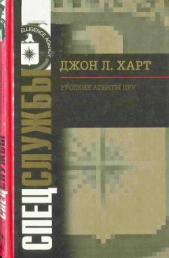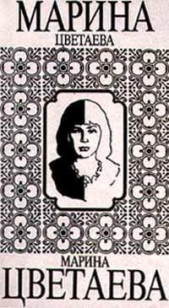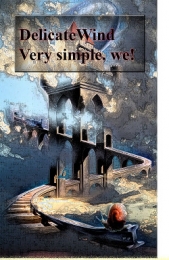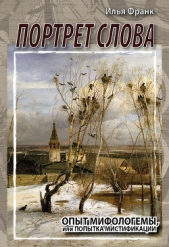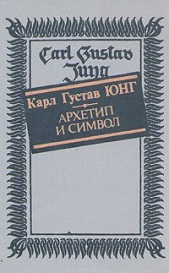Мифологемы
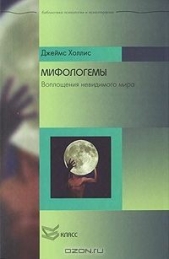
Мифологемы читать книгу онлайн
James Hollis Mythologems: Incarnation of the Invisible World
Холлис Дж. Мифологемы: Воплощения невидимого мира / Пер. с англ. В. Мершавки (Библиотека психологии и психотерапии).
ISBN 978-5-86375-167-2
Мифологема – это мифическая идея или мотив. Несколько мифологем, соединенных в единое повествование, создают миф. Мифы – это не просто древние истории, это символические выражения энергии, посредством которых на нас воздействуют энергетические поля. Мифы зачаровывают и тем самым создают нас.
В этой книге известный юнгианский аналитик Джеймс Холлис предлагает поразмышлять о том, какую роль играет миф в жизни каждого из нас, задуматься, какие скрытые силы на нас воздействуют и в какой мере наши ценности отвечают потребностям души. Он надеется, что чем больше мы будем размышлять о своей роли в мифах и легендах жизненного сценария, чем больше вопросов будем себе задавать, тем более глубоким и осмысленным будет спектакль одного актера под названием «Жизнь», зрителями и одновременно участниками которого мы все являемся.
Книга будет интересна не только психологам различных направлений, но и широкому кругу читателей.
Внимание! Книга может содержать контент только для совершеннолетних. Для несовершеннолетних чтение данного контента СТРОГО ЗАПРЕЩЕНО! Если в книге присутствует наличие пропаганды ЛГБТ и другого, запрещенного контента - просьба написать на почту [email protected] для удаления материала
Beckett, Samuel. Waiting for Godot. New York: Grove Press, 1997.
Blake, William. The Poetry and Prose of William Blake. Ed. David K. Erdman. Garden City, NY: Doubleday, 1965.
Bly, Robert, Hillman, James, Meade Michael, eds. The Rag and Bone Shop of the Heart: Poems for Men. New York: HarperCollins, 1992.
Bonhoeffer, Dietrich. Letters and Papers from Prison. Trans. Eberhard Beth-ge. New York: Macmillan, 1953.
Brecht, Bertholt. Galileo. New York: Grove Press, 1991.
Burlingame, Michael. The Inner World of Abraham Lincoln. Urbana, IL: University of Illinois Press, 1994.
Calasso, Roberto. Literature and the Gods. New York: Alfred A. Knopf. 2001.
Campbell, Joseph. The Hero with a Thousand Faces (Bollingen Series XVII). Princeton: Princeton University Press, 1972
Campbell, Joseph. Thou Art That: Transforming Religious Metaphor.
Novato, С A: New World Library, 2001.
Camus, Albert. The Stranger. New York: Knopf, 1988.
Collins, Billy. Sailing Alone Around the Room. New York: Random House, 2001.
Dahl, Roald. Kiss, Kiss. New York: Random House, 1959.
Dennis, Carl. Practical Gods. New York: Penguin, 2001.
Diagnostic Criteria from DSM-IV. Washington, DC: American Psychiatric Association, 1994.
Donaghue, Denis, ed. The Complete Poetry and Selected Prose of John Donne. New York: Modern Library, 2001.
Downing, Christine. Gods in Our Midst: Mythological Images of the Masculine: A Woman's View. New York: Crossroad Publishing, 1993.
Dunn, Stephen. Different Hours. New York: W.W. Norton and Co., 2000.
Eliot, T.S. The Complete Poems and Plays: 1909-1950. New York: Harcourt, Brace, and World. 1962.
Flaubert, Gustave. "A Simple Heart". In Three Tales. New York: Penguin, 1961.
Heidegger, Martin. Being and Time. San Francisco, CA: HarperCollins, 1962.
Henderson, Joseph L. Cultural Attitudes in Psychological Perspective. Toronto: Inner City Books, 1984.
Hoeller, Stephan A. The Gnostic Jung and the Seven Sermons to the Dead. Wheaton, IL: Theosophical Publishing House, 1982.
Hollis, James. On This Journey We Call Our Life: Living the Questions. Toronto: Inner City Books, 2003.
Hollis, James. Tracking the Gods: The Place of Myth in Everyday Life. Toronto: Inner City Books, 1995.
Homer. War Music. Trans. Christopher Logue. New York: Faber and Faber, Inc., 2001.
Jung, C.G. The Collected Works. (Bollingen Series XX) 20 vols. Trans. R.F.C. Hull. Ed. H. Read, M. Fordham, G. Adler, Wm. McGuire. Princeton: Princeton University Press, 1953-1979.
Jung, C.G. Man and His Symbols. New York: Doubleday and Co., 1964.
Jung, C.G. Memories, Dreams, Reflections. Ed. Aniela Jaffe. New York: Pantheon Books, 1961.
Kafka, Franz. Selected Short Stories. Trans. Willa and Edwin Muir. New York: The Modem Library, 1952.
Kierkegaard, Soren. Concluding Unscientific Postscript. Ed. Howard Hong and Edna Hong. Princeton: Princeton University Press, 1992.
Kripal, Jeffrey J. KaWs Child: the Mystical and Erotic in the Life and Teachings of Ramakrishna. Chicago: University of Chicago Press, 1995.
Kundera, Milan. Identity. New York: HarperFlamingo, 1998.
Koeppen, Wolfgang. Death in Rome. Trans. Michael Hofmann. New York: W.W. Norton amp; Co., 1954.
Matthews, William. 'The Psychopathology of Everyday Life". In The Norton Introduction to Poetry. Ed. J. Paul Hunter. New York: Norton and Norton, 1973.
McGuire, William, and Hull, R.F.C., eds. C.G.Jung Speaking. Princeton: Princeton University Press, 1977.
Musil, Robert. The Man Without Qualities. New York: Perigee Books, 1980.
Nasar, Sylvia. A Beautiful Mind: The Life of Mathematical Genius and Nobel Laureate John Nash. New York: Simon and Schuster, 1998..
Nietzsche, Friedrich. The Portable Nietzsche. Ed. Walter Kaufmann. New York: Viking, 1972.
The Norton Anthology of Poetry. 3rd edition. Ed. Alexander Alison et al.New York: WW Norton and Company, 1983.
Ovid. Metamorphoses. Trans. Mary M. Innes. London: Penguin Books, 1995.
Oz, Amos. The Same Sea. Trans. Nicholas de Lange. New York: Harcourt, Inc. 1999.
Paris, Ginette. Pagan Grace: Dionysos, Hermes and Goddess Memory in Daily Life. Woodstock, CT: Spring Publications, 1990.
Paris, Ginette. Pagan Meditations: The Worlds of Aphrodite, Artemis, and Hes-tia. Woodstock, CT: Spring Publications, 1986.
Perse, Saint-John. Anabasis. Trans. T.S. Eliot. New York: Harcourt, Brace, Jo-vanovich, 1949.
Plath, Sylvia. The Collected Poems. New York: Harper and Row, 1981.
Rilke, Rainer Maria. The Duino Elegies. Trans. J.B. Leishman and Stephen Spender. New York: Norton, 1967.
Rilke, Rainer Maria. The Notebook of Malte Laurids Brigge. Trans. M.D. Hert-er Norton. New York: W.W. Norton and Co., 1949.
Rilke, Rainer Maria. Sonnets to Orpheus. New York: W.W. Norton Inc., 1962.
Rosenthal, M.L., ed. Selected Poems and Two Plays of William ButlerYeats. New York: Macmillan, 1962.
Schopenhauer, Arthur. Samtliche Werke. Frankfurt: Verlag der Corraschen Buchhandlung, 1895-1998.
Sharp, Daryl. The Secret Raven: Conflict and Transformation in the Life of Franz Kafka. Toronto: Inner City Books, 1980.
Slochower, Harry. Mythopoesis: Mythic Patterns in the Literary Classics. Detroit: Wayne State University Press, 1970.
Stem, Paul. C.G.Jung: The Haunted Prophet. New York: George Braziller, 1976.
Tamas, Richard. Prometheus the Awakener. Woodstock, CT: Spring Publications, 1995.
Thomas, Dylan. Collected Poems. New York: New Directions Publishing Co., 1946.
Tillich, Paul. The Courage To Be. Ncwhaven, CT: Yale University Press, 1980.
Waley, Arthur. The Way and Its Power. New York: Grove Press, 1958.
Wordsworth, William. William Wordsworth: The Major Works. Oxford, U K.Oxford University Press, 2000.
Yeats, W.B., ed. The Oxford Book of Modern Verse. Oxford, UK: Oxford University Press, 1936.
Глоссарий юнгианских терминов
Анима (Anima) (лат. «душа») – бессознательная, женская часть личности мужчины. В сновидениях Анима воплощается в образе женщин. Спектр персонажей очень широк – от проститутки и соблазнительницы до духовной путеводительни-цы (Премудрости). Анима несет в себе закон Эроса и подчиняется ему, поэтому развитие мужской Анимы отражается на отношении мужчины к женщине. Идентификация с Анимой может проявляться в подверженности перепадам настроения, в изнеженности и чрезмерной чувствительности. Юнг называл Аниму архетипом самой жизни.
Анимус (Animus) (лат. «дух») – бессознательная мужская часть личности женщины. Он подчиняется закону Логоса. Идентификация с Анимусом проявляется у женщины в жесткости, стремлении отстаивать свою точку зрения и склонности к аргументации. Говоря о позитивной стороне Анимуса, можно представить его как внутреннего мужчину, который, подобно мосту, соединяет Эго женщины с творческими ресурсами ее бессознательного.
Архетипы (Archetypes) – понятие, которое трудно представить конкретно, но их воздействие проявляется в сознании в качестве архетипических образов и идей. Это универсальные паттерны или мотивы, которые всплывают из коллективного бессознательного и являются основой религий, мифов, легенд и сказок. В психике человека они возникают в снах и видениях.
Ассоциация (Association) – спонтанный поток сцепленных между собой мыслей и образов, имеющих отношение к определенной идее, обусловленной сетью бессознательных связей.
Вечный юноша (лат. Puer aeternus) – определенный тип мужчины с характерной, слишком затянувшейся подростковой психологией, которая, первую очередь, связана с сильной бессознательной привязанностью к матери (реальной или символической). Позитивными чертами мужчин такого типа являются спонтанность и способность к изменению. Его женская противоположность (Puella) – «вечная девушка» -имеет соответствующую привязанность к отцовскому комплексу.
